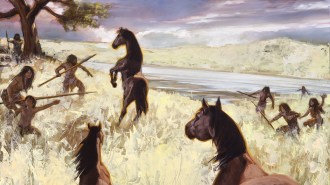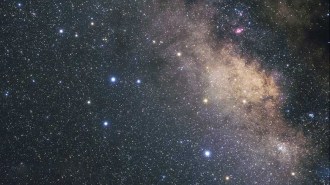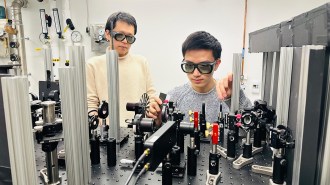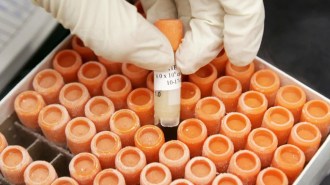All Stories
-

Seeking the anomalies that lead to discoveries
Editor in chief Nancy Shute discusses the booming online market for semaglutide, new findings on how early humans used sophisticated thinking and whether Spinosaurus could swim.
By Nancy Shute -

-
 Astronomy
AstronomyA gas clump in the Milky Way’s neighborhood might be a ‘dark galaxy’
A blob of gas seen outside the Milky Way could be a type of starless, dark matter–dominated galaxy. Some scientists are skeptical.
-
 Environment
EnvironmentFires in the Amazon forest may melt sea ice in Antarctica
Satellite data reveal a link between the amount of black carbon in the atmosphere and rates of Antarctic sea ice loss in recent years.
-
 Humans
HumansAncient horse hunts challenge ideas of ‘modern’ human behavior
An archaeological site in Germany suggests communal hunting and complex thinking emerged earlier in human evolution than once thought.
By Bruce Bower -

Limits of Knowledge Crossword
Solve our latest interactive crossword. We'll publish science-themed crosswords and math puzzles on alternating months.
-
 Astronomy
AstronomyA claimed hint of alien life whips up spirited debate
Astronomers have a lot of thoughts about the latest paper claiming we’ve found the strongest hints of alien life yet on the distant planet K2 18b.
-
 Space
SpaceA NASA rover finally found Mars’ missing carbon
The Curiosity rover identified hidden caches of the mineral siderite, which could help explain why Mars lost its habitable climate.
-
 Health & Medicine
Health & MedicineClinical trials face uncertain futures amid Trump cuts
The Trump administration has reportedly disrupted over 100 clinical trials. Science News spoke to researchers about the impacts on four of them.
-
 Astronomy
AstronomyYes, there really is a black hole on the loose in Sagittarius
Astronomers now agree: They’ve spotted the first isolated stellar-mass black hole ever seen.
By Ken Croswell -
 Physics
PhysicsImitation dark matter axions have arrived. They could reveal the real thing
A long-elusive, hypothetical subatomic particle called the axion can be simulated and potentially detected in a type of thin material.
-
 Neuroscience
NeuroscienceEarly Parkinson’s trials revive stem cells as a possible treatment
The phase I clinical trials showed stem cell transplants for Parkinson’s disease appear to be safe and might restore dopamine-producing brain cells.